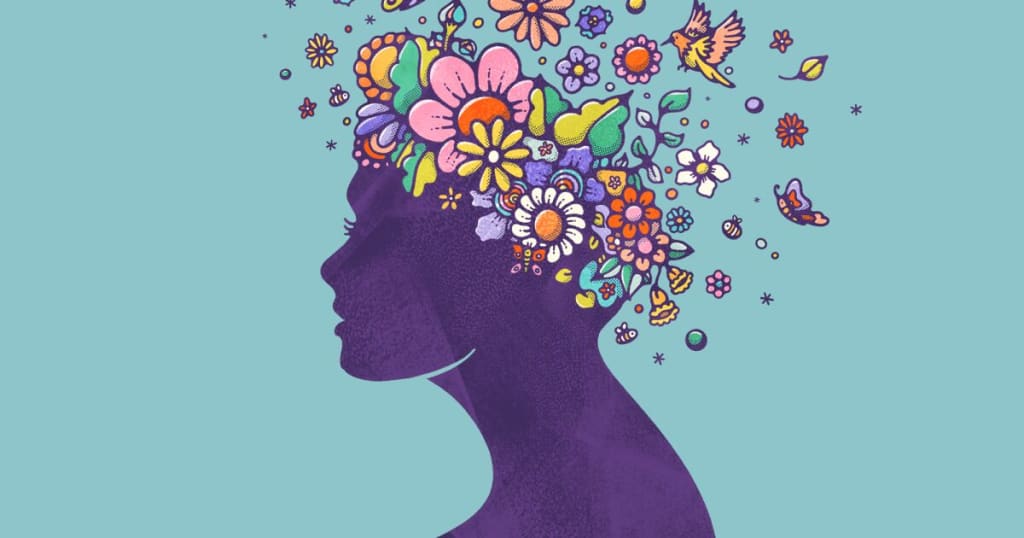The Link Between Physical and Mental Health
How Exercise Boosts Your Mood

In our quest for holistic well-being, we often overlook the powerful connection between physical and mental health. The benefits of exercise extend beyond physical fitness; they play a crucial role in boosting our mood and nurturing our mental well-being. In this article, we will explore the inspiring link between physical activity and mental health, backed by real-life examples and scientific insights. Let's embark on a journey of empowerment and discover how exercise can be a powerful tool in enhancing our mood and overall happiness.
The Science Behind Exercise and Mood:
Exercise triggers the release of endorphins, the "feel-good" chemicals in our brains. These neurotransmitters interact with receptors to reduce pain perception and promote a positive mood.
Example: Renowned athlete Serena Williams attributes her dedication to exercise as a crucial factor in maintaining her positive mindset on and off the tennis court.
A Natural Stress Reliever:
Physical activity acts as a natural stress reliever, reducing the levels of stress hormones like cortisol and adrenaline, and promoting relaxation.
Example: After a long day of work, entrepreneur Richard Branson enjoys kiteboarding, finding it to be a stress-relieving activity that uplifts his spirits.
Elevating Self-Esteem:
Regular exercise contributes to improved self-esteem and self-confidence. Achieving fitness goals and feeling stronger can boost self-worth.
Example: Actor and comedian Kevin Hart shared his fitness journey, highlighting how exercise transformed his self-esteem and positively impacted his career.
Combatting Anxiety and Depression:
Exercise has shown to be effective in reducing symptoms of anxiety and depression by promoting the release of neurotransmitters that regulate mood.
Example: Olympic swimmer Michael Phelps openly discussed his battle with depression and how swimming played a crucial role in his healing process.
Enhancing Cognitive Function:
Exercise enhances cognitive function and memory by stimulating the growth of new brain cells and improving brain health.
Example: World chess champion Magnus Carlsen recognizes the positive impact of physical exercise on his mental acuity during intense matches.
Social Connection and Mood:
Group exercises or team sports provide opportunities for social interaction, reducing feelings of isolation and loneliness, and promoting a sense of belonging.
Example: The popular fitness movement, CrossFit, encourages camaraderie and community support, contributing to the overall mental well-being of its members.
Cultivating Resilience:
Exercise teaches us discipline, determination, and resilience—qualities that translate to our daily lives, empowering us to overcome challenges.
Example: Marathon runner Kathrine Switzer's determination to break barriers in sports demonstrates the resilience cultivated through physical activity.
Conclusion:
The link between physical and mental health is undeniable, with exercise serving as a powerful tool to boost mood and enhance overall well-being. The release of endorphins, stress reduction, improved self-esteem, and cognitive function are just a few of the transformative benefits that exercise provides. By drawing inspiration from real-life examples of athletes, entrepreneurs, and public figures, we understand the profound impact of physical activity on mental health. Embrace the transformative power of exercise in nurturing your mood and happiness. Integrate physical activity into your daily routine, and let it be the catalyst that elevates your mood, promotes resilience, and fosters a positive outlook on life. Remember, the journey to holistic well-being begins with the simple act of moving your body, and the rewards are boundless—both physically and mentally.
About the Creator
Enjoyed the story? Support the Creator.
Subscribe for free to receive all their stories in your feed. You could also pledge your support or give them a one-off tip, letting them know you appreciate their work.





Comments
There are no comments for this story
Be the first to respond and start the conversation.